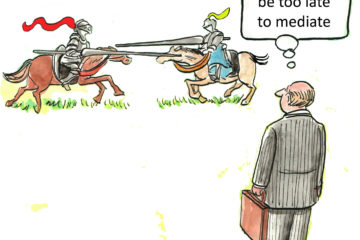| Here’s a story and my insights from the ongoing work I do in Bangladesh. Seven years ago, I set up a training academy in Bangladesh with a Bangladeshi colleague. I’ve visited that country more than a dozen times and organized over 30 visits by other New Zealand-based trainers. We have worked with senior executives as well as recent graduate employees and university students to help them develop the soft skills essential for success in business. Not to be put off by a pesky pandemic which meant a push of the pause button, we changed our delivery model to an online format. This has allowed us to extend our reach to many other countries in the Asia region and beyond. Last Saturday over 300 recent graduates and university students from Bangladesh, Nepal, Sri Lanka, India, Afghanistan, Liberia, Philippines, Singapore and Malaysia tuned in to my online presentation about managing emotions. The Covid situation is dire in most of those countries. Extended lockdowns have disrupted lives. Meeting friends and attending social gatherings is discouraged. Obtaining and retaining work is a challenge. Many on the call said they often felt depressed, anxious and not motivated to work or study. Even though there are stark contrasts in social and cultural conditions between New Zealand and those other countries, over these seven years I’ve seen that there are many similarities with how people struggle to manage emotions, such as depression and anxiety. |

| At the end of the online presentation someone asked what five things I would recommend they do to motivate themselves each day when they might otherwise feel depressed or anxious. Here’s what I suggested: Breathe deeply: This will help slow you down, activate the Vagus nerve[1] (the largest nerve in the body) and activate the parasympathetic nervous system, encouraging rest and digest rather than fight/flight. Ground yourself: Take time to become aware of your surroundings so that you are grounded in the real world. You can easily make yourself anxious when you imagine terrible things that could happen in the future. Stay in the present, look around you, touch things that are real. The scary future is not usually real. Keep breathing. (See No 1 above). Check your thinking: Your thoughts influence how you feel. It is easy to think that bad things will happen. You become anxious as if your thoughts were really happening. Most of your bad thoughts end up being about the future that never actually happens. Even if bad things do happen a reality check can tell you that they will eventually pass. Check to see if your thinking is causing you to feel anxious about something that isn’t actually real. Contact trusted friends: Talk with friends who will just listen, and not judge you. Talking will help you better understand your own thinking. Friends who want to jump in and fix your feelings generally don’t help. If you can’t find someone to just listen, then write your thoughts and feelings down in a personal journal. You don’t even need to show it to anyone else. Be your own friend! Gratitude: Take time each morning (and other times during the day) to name three things that you are grateful for in your life. Even just trying to name what you are grateful for will change your brain’s focus towards more positive things. That way, your problems will not so easily overshadow the positives in your life. There are many other things that might lift your mood and motivate you. Distract yourself with activities such as exercise, listening to music, singing, dancing, helping others less fortunate than you, or reading. Also, look after yourself by avoiding negative news media, getting restorative sleep, eating healthy food. Find what works for you. Health Warning: There may be times when you are so depressed and/or anxious that you can’t shift your mood from one day to the next, and it feels too hard to try. If you are unsure, seek the advice of a medical professional. You may need to take medication, which can help to break the vicious cycle of depression and anxiety. But keep trying to take positive actions too, as well as any prescribed medication. [1] The Vagus Nerve Explained in Plain English | Diet vs Disease |

